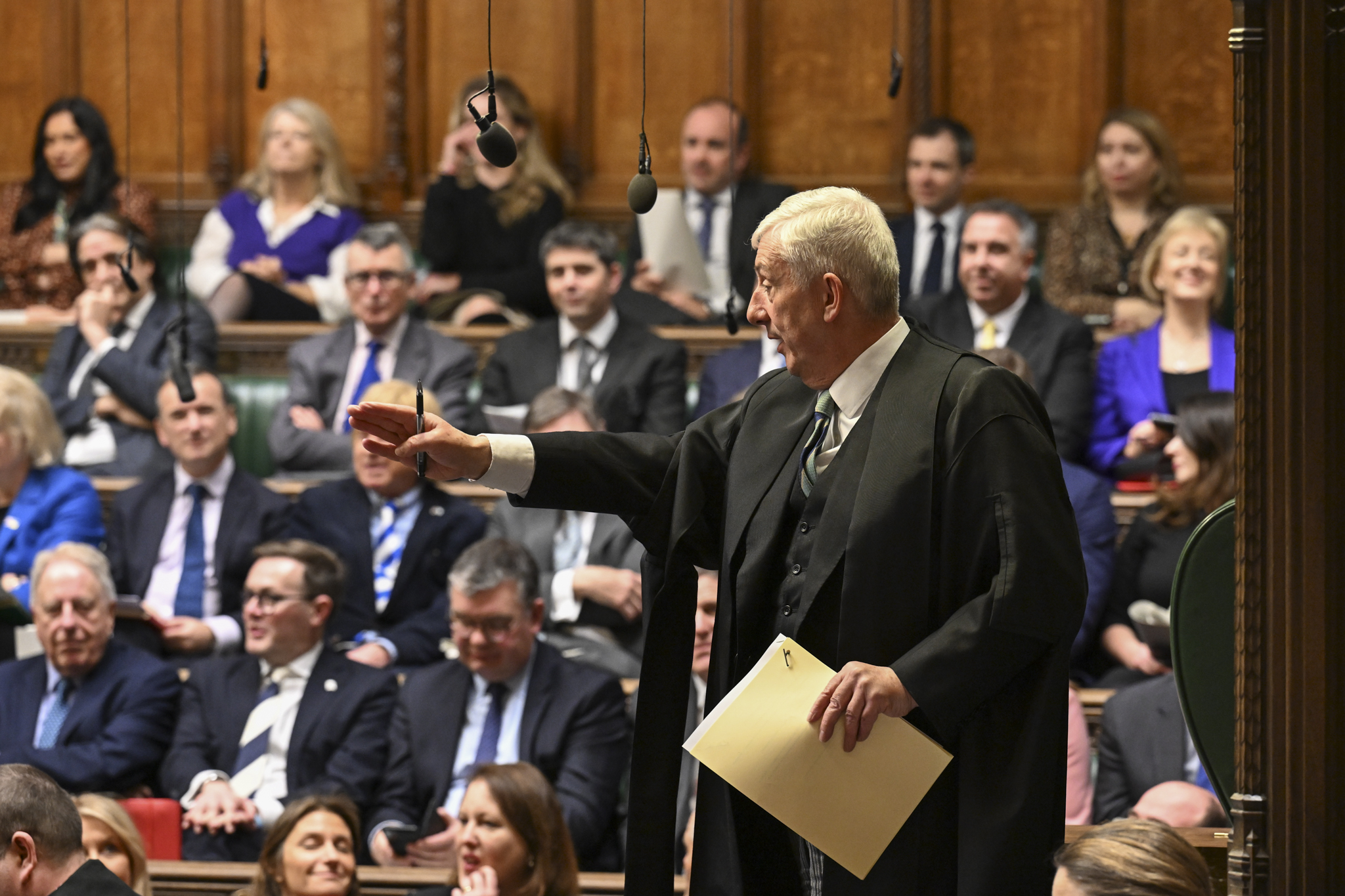If you ever get the chance to visit the House of Commons chamber, make sure to look up, above the famous green benches.
Around the walls of the chamber, tucked away and too small to make out in most of the TV camera angles, are a series of coats of arms, accompanied by names in gold lettering.
These are the tributes to members of parliament who died in service to their country. Most commemorate MPs who gave their lives in the First and Second World Wars, fighting alongside fellow citizens.
But they were eventually joined by other names, targeted because of their role as MPs. There are plaques for Airey Neave and Ian Gow, Conservative MPs killed by Irish republican car bombs; and Anthony Berry, who died in the Brighton bombing, when the Provisional IRA targeted the hotel Margaret Thatcher was staying in during the 1984 Conservative Party conference.
“I will not share the details, but the details of the things that have been brought to me are absolutely frightening for all Members of the House, on all side”
Speaker Lindsay Hoyle
Then there are the recent additions. A plaque was placed for Jo Cox, the Labour MP murdered by a right-wing extremist during the EU referendum campaign in 2016; it carries the words, “more in common”, a quote from her maiden speech in parliament.
Her death turned the phrase into a slogan of defiance against the growing sense of division in politics. Cox’s murder came a few weeks into my time as a Westminster political journalist, and I remember the profound shock at a killing, both random and pointless but motivated by hateful ideology, which seemed like it belonged to a bygone generation.
And yet, it happened again. The most recent plaque is for David Amess, murdered in 2021 while carrying out a constituency surgery, by an ISIS supporter determined to kill an MP.
 UK Parliament/Maria Unger
UK Parliament/Maria UngerThose plaques have been referenced in Commons debate following the row over this week’s Gaza vote. In apologising for his decision to break Commons conventions, Speaker Lindsay Hoyle – who is now the subject of a motion of no confidence from angry SNP and Tory MPs – referenced the growing risks to MPs.
“I never, ever want to go through a situation where I pick up a phone to find a friend, on whatever side, has been murdered by a terrorist,” Mr Hoyle told MPs
“I will not share the details, but the details of the things that have been brought to me are absolutely frightening for all Members of the House, on all sides. I have a duty of care and I say that if my mistake is looking after Members, I am guilty.”

As threats have grown, the costs of making MPs safe have skyrocketed in recent years, both in financial terms, and when it comes to the accessibility of our democratically elected representatives.
IPSA, the agency that manages the public funds that allow MPs to do their job, spent just £37,000 per year on security assistance, a decade ago.
Now that figure regularly tops £4m per year. The shift came during the Brexit years, not just because of Cox’s murder, but also the advent of angry, semi-permanent protests outside Westminster, with media interviews and simply turning up for work becoming a threatening gauntlet for parliamentarians.
Regular death threats mean MPs now regularly have multiple security locks and alarms fitted to their homes. Surgeries that used to be open for constituents to walk-in and raise issues, are usually now appointment-only.
And, of course, social media means that abuse and harassment of all kinds is now an inescapable part of our political culture, whether it’s vile sexist, misogynist and racist language directed at MPs, including threats of rape towards women parliamentarians, or extremists like Stephen Yaxley-Lennon, aka Tommy Robinson, pursuing them to film content for their platforms.
This year’s general election will see the highest number of MPs standing down since 2010, and while most of them are Conservatives who may be weighing up slim chances of re-election, a surprising number are MPs who have only served since 2017 or 2019.
One of those standing down is Conservative MP Mike Freer, whose constituency office was destroyed by an arson attack. Another is the SNP’s Mhairi Black.

“Since 2015, the lives of my loved ones have been turned upside down and inside out,” Black said of her decision.
“Between media attention, social media abuse, threats, constant travel, and the murders of two MPs, my loved ones have been in a constant state of anxiety for my health and safety.”
What few solutions have been suggested are controversial. A review ordered following Amess’ murder has now suggested allowing police to break up protests outside Parliament itself, as well as MPs’ constituency offices and homes.
The fact that security concerns have directly impacted a parliamentary vote – with Sir Keir Starmer personally appealing to the Commons Speaker to put a Labour amendment ahead of an SNP motion on Gaza to avoid anger directed at Labour MPs – shows just how far things have gone.
Labour figures admit privately that Starmer has had to keep a lower profile since the war in Gaza, particularly after he was mobbed by demonstrators getting off a train in Glasgow last year.
No one wants to see more plaques on the walls of the Commons chamber. But no one wants to sacrifice our democratic rights, either.
Follow STV News on WhatsApp
Scan the QR code on your mobile device for all the latest news from around the country




























